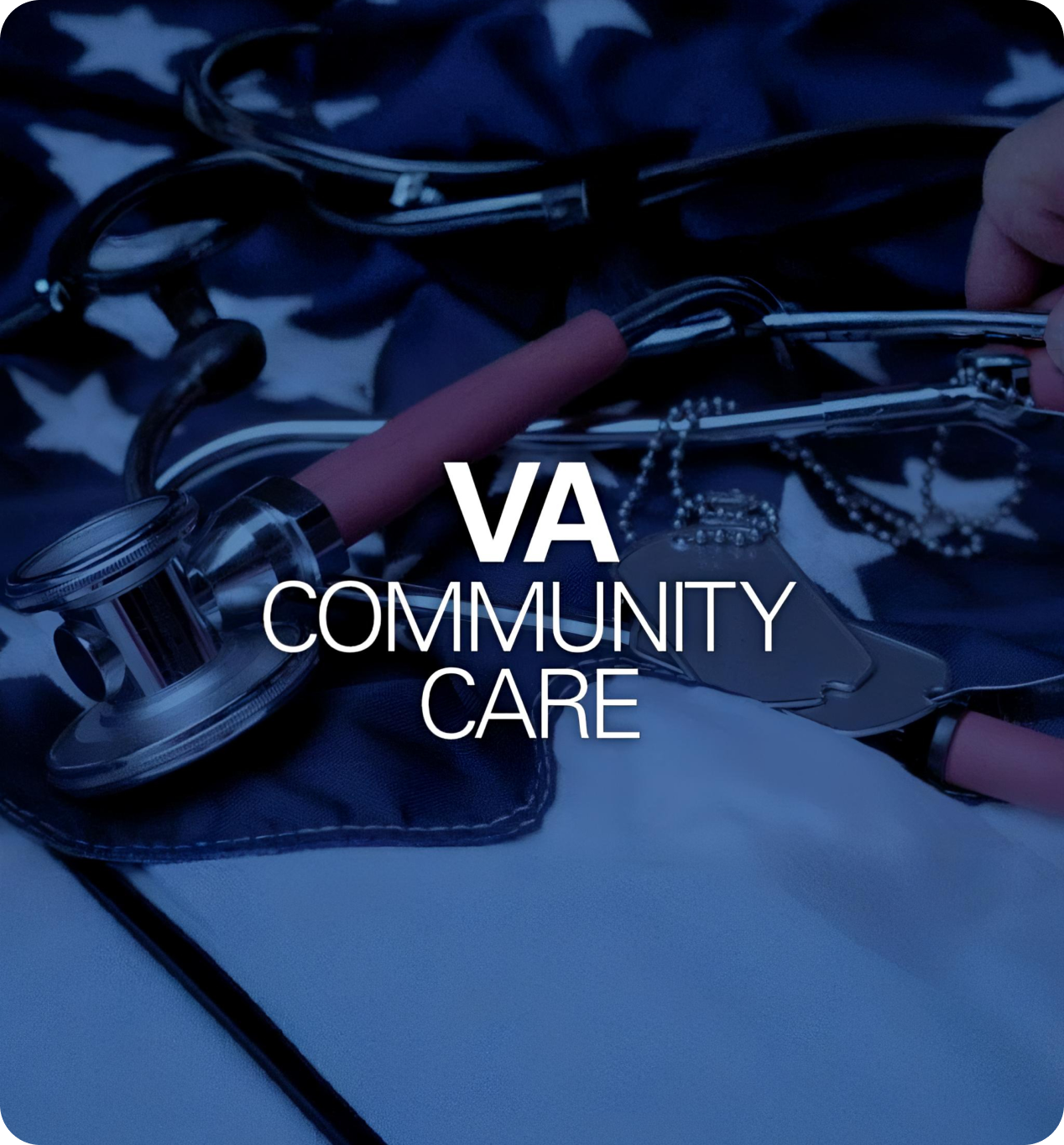Join
The VA Community Care Network
A Guide for Behavioral Neurology & Neuropsychiatry Specialists
In California, independent Physician Assistants (PAs) can bill the Department of Veterans Affairs (VA) for services provided to veterans, but it’s essential to understand the regulations surrounding this process.
Welcome to Veterans Desk, your trusted resource for connecting healthcare professionals with meaningful opportunities to care for our nation’s veterans. This guide is tailored for Behavioral Neurologists and Neuropsychiatrists who evaluate and treat veterans experiencing cognitive, emotional, and behavioral changes due to neurological conditions.
Whether you specialize in traumatic brain injury (TBI), dementia, or neurodegenerative disease, this guide provides a clear roadmap to enroll in the VA Community Care Network (CCN) and deliver care where it’s most needed.

Step-by-Step Enrollment in the VA CCN
Verify Your Credentials
- Hold an active state medical license in neurology, psychiatry, or both.
- Possess board certification in Neurology, Psychiatry, or both.
- Provide fellowship training or documented experience in behavioral neurology or neuropsychiatry.
Prepare Required Documents
- Updated CV
- Valid state license and malpractice insurance
- Completed W-9 form
- Any additional neurobehavioral training or continuing education
Submit Your Application
Apply through the appropriate CCN regional portal:
Complete Required VA Training
- VA HIPAA & Privacy Modules
- Behavioral Health & Neurology-specific VA training
Credentialing & Facility Review
- VA or its contractors will verify your credentials.
- If applicable, your clinic may be reviewed for compliance and accessibility.
Begin Care Delivery
Once contracted, you can begin receiving veteran referrals for neurobehavioral evaluation and treatment under approved care plans.

Why Behavioral Neurology & Neuropsychiatry Specialists Matter to Veterans
Veterans face increased risk of neuropsychiatric conditions due to factors such as blast injuries, concussions, toxic exposures, and prolonged operational stress. Your expertise in bridging the fields of neurology, psychiatry, and neuropsychology is essential for diagnosing and managing:
- Traumatic Brain Injury (TBI)
- Alzheimer’s disease and related dementias
- Parkinson’s disease and movement disorders
- Post-stroke behavioral changes
- Cognitive symptoms of multiple sclerosis and other neurological illnesses
As a Behavioral Neurologist or Neuropsychiatrist in the CCN, your role may include:
- Conducting neurocognitive assessments
- Managing behavioral and psychiatric symptoms secondary to neurological disease
- Collaborating with interdisciplinary VA care teams
- Participating in care plans for long-term cognitive and mental health recovery


Key Benefits of Joining the VA CCN
- Serve a High-Need Population: Help veterans suffering from neurological trauma, cognitive decline, or complex comorbid conditions.
- Collaborative Interdisciplinary Care: Work alongside VA neurologists, psychiatrists, social workers, and rehabilitation therapists.
- Specialized Scope of Practice: Lead in diagnosis, medication management, and behavioral interventions tailored to neuropsychiatric needs.
- Support for Advanced Diagnostics: Contribute to early detection and therapeutic innovation in TBI, Alzheimer’s, and related conditions.
- Telehealth Access: Expand your reach with VA-supported tele-neuropsychiatry platforms for ongoing patient management.

Bridging the Gap for Veterans

Educational Support & Career Growth
- Access VA-sponsored CME on brain injury, dementia care, and neuropsychiatric interventions.
- Collaborate on research or case conferences with VA neurologists and mental health clinicians.
- Explore opportunities for student loan forgiveness through federal service programs.
Learn more at VA Education and Training

Transitioning from Military Service
- Military neurologists or psychiatrists should consider converting military credentials and exploring expedited state licensure.
- Emphasize deployment-related experience with neurotrauma, PTSD, and TBI in your application to enhance VA credentialing.
Frequently Asked Questions (FAQs)
Can I bill for both psychiatric and neurological services?
Yes, if you are dually certified and treating both aspects under an approved VA care plan.
Are behavioral assessments for TBI covered?
Yes. These services are prioritized within the VA system and reimbursable with proper medical documentation.
Can I provide services via telehealth?
Absolutely. Tele-neuropsychiatry is encouraged, especially for veterans in rural or underserved areas.
Can I work as part of an interdisciplinary team?
Yes. You’ll often coordinate with VA psychologists, neurologists, rehabilitation specialists, and case managers to ensure comprehensive care.

